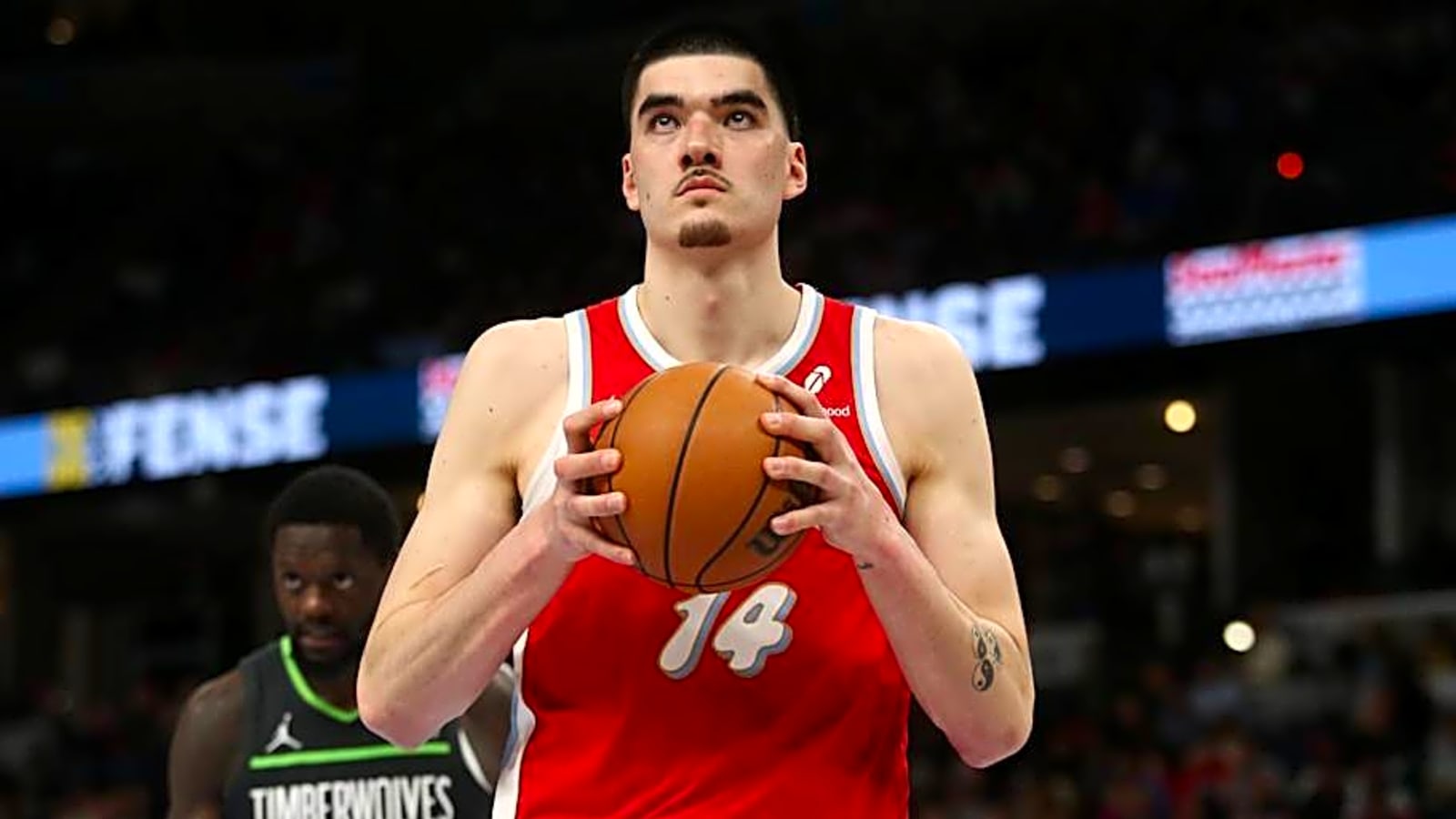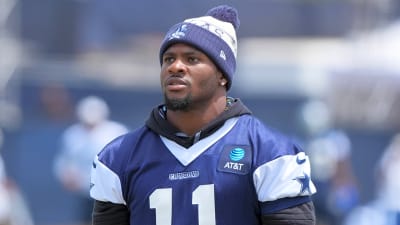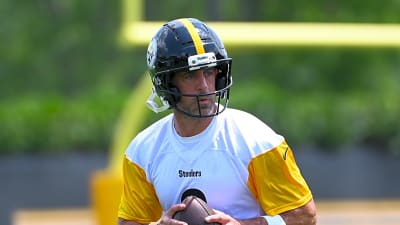
In the 2024-25 rookie class’ first and second sets of report cards, the top six picks each earned a grade for their performance in their respective debut seasons. Their grades are displayed in the table below.
Now, the remainder of last year's top-ten picks will enter the spotlight and get assigned a grade for their rookie campaign.
Remember, this grade not only reflects their impact this year, but more so the level of optimism that should surround them moving forward, particularly relative to their draft position.
Donovan Clingan, Portland Trail Blazers: A-
No. 7 Overall Pick
Donovan Clingan had a quiet campaign, but throughout the season, he established himself as a budding star interior defender and rebounder, as well as the franchise center for Portland. The 7-foot-2 center helped his UConn Huskies win back-to-back National Championships with his stifling rim protection, and this success has largely carried over to the league as he posted a 97th percentile block rate among big men this season. Further, he also made a large impact through his rebounding, posting a 97th percentile offensive rebounding rate as well. Over the course of his final 16 appearances, Clingan played his best ball, averaging 8.8 points, 10.4 rebounds, and 1.9 blocks in 27.8 minutes of playing time.
On the other hand, Clingan's offensive production left a lot to be desired. He ranked in just the 27th percentile as a rim finisher among bigs, and didn't do much scoring at all from anywhere else. Further, he shot an abysmal 59.6% from the free throw line. The 21-year-old center will have to keep progressing as a scorer to be a high-end starting center, but his early success as a defender and rebounder still earns him an A- grade.
Rob Dillingham, Minnesota Timberwolves: B-
No. 8 Overall Pick
With his Timberwolves in the Western Conference Finals, Dillingham's rookie campaign isn't quite over. However, given he's yet to play a postseason minute, it's probably fair to finalize his season takeaways.
The 6-foot-1 guard enjoyed some dazzling moments as an off-the-bench creator this year. He scored 15+ points twice, including an impressive 19-point, 8-assist showing against the Utah Jazz. Still, while he didn't receive ample opportunity on a deep, contending team, Dillingham didn't do much to impress in his 500+ minutes of play. He enjoyed some microwave scoring flashes here and there, but this off-the-dribble creation ability is exactly his calling card. The 19-year-old's star potential as a scorer and playmaker is the very reason he was drafted, let alone the eighth overall pick, and his 4.5 points per game on 50 TS% this season was far from the ideal star indicator from this type of prospect.
As a rookie, the former Kentucky Wildcat didn’t do much to establish himself as a star-in-the-making on the offensive end, nor ease many concerns about his defensive competency. As a result, he earns a B- grade.
Zach Edey, Memphis Grizzlies: A
No. 9 Overall Pick
It’s easy to form an overly-pessimistic view on Edey based on some stretches of his postseason play last month. He botched his fair share of finishes, had rough patches as a defender in space, got into foul trouble, and didn't rebound the ball as well as the Grizzlies may have hoped.
However, the fact that he even earned his way to nearly 30 minutes of playing time in a playoff series speaks volumes to the relative success of his rookie campaign. He nearly averaged a double-double, and posted 20+ points twice. The 23-year-old also recorded a crucial 15 points and 11 rebounds to help the Grizzles clinch a playoff spot in the play-in tournament.
As a 7-foot-4 center carving out a unique role in the NBA, Edey was bound to undergo some growing pains as a first-year player. Memphis asked a lot of him as a screener, play finisher, rebounder, and pick-and-roll defender and he was far from perfect. Overall, Edey still demonstrated the makings of an impactful starting center, who could very well leverage his dominant traits to make a sizable interior impact moving forward. For this success, Edey earns an A grade.
Cody Williams, Utah Jazz: D
No. 10 Overall Pick
Cody Williams had no shortage of opportunity in his rookie season. Across 50 appearances, he played north of 20 minutes on average, even starting in 21 of these games. However, he was never quite able to establish any sort of momentum, especially as a scorer. He reached double-figure points in just four games, which spanned across three separate months. On the season, he shot just 39.3% from two-point range and 25.9% from three.
Beyond shooting well below average from every part of the floor, the 19-year-old wing faced struggled in many other parts of the game. He frequently turned the ball over, posted below average rebounding rates, and rarely disrupted plays as a defender.
While he undoubtedly possesses the physical traits, such as a 7-foot-1 wingspan, to impact the game in many ways from the wing position, Williams currently lacks the skills and physicality to leverage them for any NBA value. Entering his first NBA summer, the University of Colorado product will look to build upon a rookie season that earned him a D grade.
More must-reads:
- Surprising update emerges about Jayson Tatum's recovery
- Report: Knicks made a signing based on Giannis Antetokounmpo trade belief
- The 'NBA Summer League MVPs' quiz
Breaking News
Trending News
Customize Your Newsletter
 +
+
Get the latest news and rumors, customized to your favorite sports and teams. Emailed daily. Always free!








